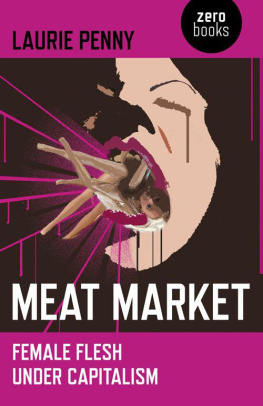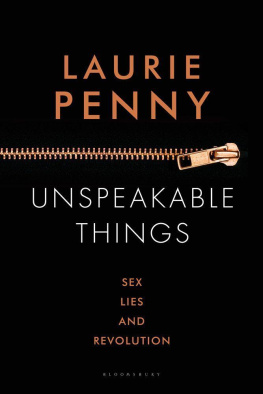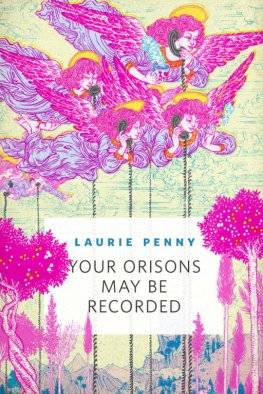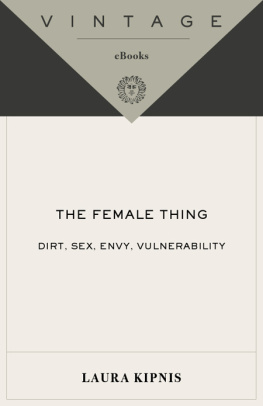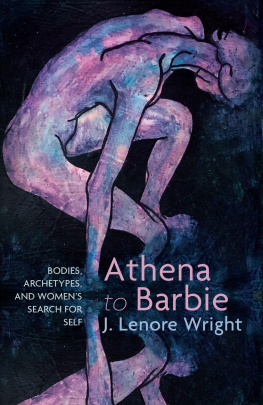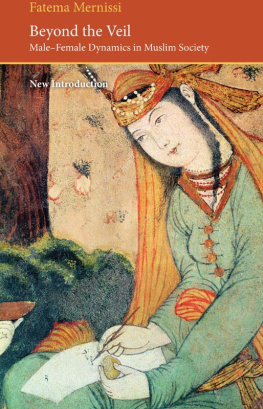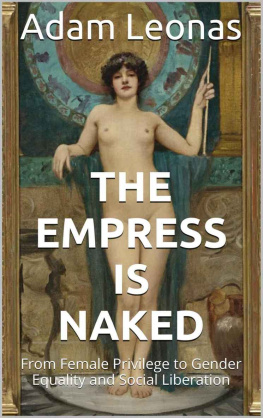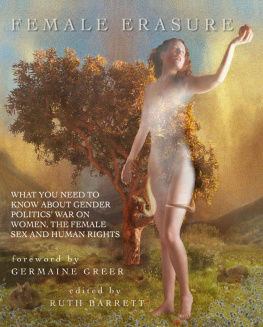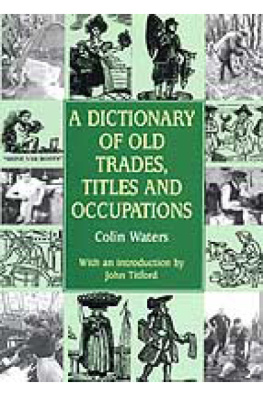


O-Books is an imprint of John Hunt Publishing Ltd., Laurel House, Station Approach,
Alresford, Hants, SO24 9JH, UK
office1@o-books.net
www.o-books.com
For distributor details and how to order please visit the 'Ordering' section on our website.
Text copyright: Laurie Penny 2010
First Published 2011
ISBN: 978-1-84694-521-2
All rights reserved. Except for brief quotations in critical articles or reviews, no part of this book may
be reproduced in any manner without prior written permission from the publishers.
The rights of Laurie Penny as author have been asserted in accordance with the Copyright, Designs
and Patents Act 1988.
A CIP catalogue record for this book is available from the British Library.
Design: David Kerby
Printed in the UK by CPI Antony Rowe
Printed in the USA by Offset Paperback Mfrs, Inc
We operate a distinctive and ethical publishing philosophy in all areas of our business, from our global network of authors to production and worldwide distribution.
For my sisters, and for Mike
Acknowledgements
If I were to acknowledge everyone whose love and attention helped me write this there would be no space left for the chapters. Particular thanks, however, must go to:
James Butler, Roz Kaveney, Adrian Bott, Lucy Bond, Kerry Norman, Mark Brown, Sasha Garwood, Jess McCabe, Tanya Gold, Warren Ellis, China Mieville and my fairy godmother, Cath Howdle, for their editing input and moral support.
Andy May, Alex Betteridge and El Morris, three of the most excellent human beings I know, for their passion and friendship during the darkest parts of our early twenties.Chris Naden, for his tireless guidance and his wisdom.
Nina Power, for her searing feminist intellect and for introducing me to Zer0 Books. Tariq, Mark and Emma at Zer0, for putting up with my changing the title twenty times.
Germaine Greer, for responding to my enthusiastic ten-year-old correspondence so graciously.
My parents, Jane and Ray, for their patience and love; my little sisters, for giving me a reason to fight; and last but not least, to Michael Penny, who showed me where the books were.
Introduction Branded Bodies
Why are we so afraid of womens bodies? Some four decades after women in most Western countries gained complete legal and equality, our societies continue to cultivate a rigorous, stage-managed loathing for female flesh. Whatever our age, race, physiotype and social status, womens bodies are punished and policed. We are bombarded every day with countless thousands of messages informing us that we do not look young enough, slim enough, white enough and willing enough, messages that come to us subtly and not so subtly, through film, television, advertising, print media and casual acquaintance, messages from which there is no reprieve. Corralled into rituals of consumption and self-discipline that sustain a bloated global market in beauty, diet, fashion and grooming products, three quarters of women in countries where food is plentiful go hungry every day in an effort to take up as little space as possible. Even if we do attain something close to the perfect physical control demanded of us, we are aware that our bodies are not our own: we are at constant risk of sexual violence and murder; one in five women in Britain and America is a victim of rape, and the rest of us learn to live in fear of rape. We are required to appear confident and sexually available at all times, but shamed and ostracised if we express arrogance, ambition or any sort of erotic desire. Everywhere, in every part of womens lives, physical control, self-discipline and sterile sexual display are the watchwords of a new gender conformity that is branded into our very flesh.
Female flesh is a powerful resource. Even in societies where women now have equality on paper, it is still women who are obliged to produce, bear and raise children and perform the majority of domestic and caring tasks entirely for free, often on top of full-time paid work outside the home. In addition, over 80% of everything that is sold in developed countries is bought by women1, providing a vital engine for the consumption required to sustain neoliberal modes of production. Modern economies rely for their very survival upon womens paid and unpaid labour, purchasing power and reproductive capacity. That women should have this much power cannot be borne; the threat of revolt is too great.
If consumer society is to continue to exist in the manner to which it has become accustomed, it is essential that this latent power be appropriated, tamed and made docile. The ways in which contemporary capitalism undermines womens bodies, from advertising to pornography to the structures of gendered labour and domestic conflict, are not private troubles with no bearing upon the wider world. They are necessary fetters in a superstructure of oppression that has become so fundamental to the experience of femininity that it is effectively invisible. This superstructure is vital to the very survival of the patriarchal capitalist machine. If all women on earth woke up tomorrow feeling truly positive and powerful in their own bodies, the economies of the globe would collapse overnight.
This short book is an attempt to chart some of the ways in which womens bodies are marginalised and controlled under late capitalism. In four chapters, covering sexuality, eating disorders, gender capital and domestic labour, Meat Market sets out some of the parameters for the trade in female flesh as sexual and social capital, and demonstrates how women are alienated from their sexual bodies and required to purchase the fundamentals of their own gender.
In her criminally neglected The Dialectic of Sex, Shulamith Firestone identified this process as a campaign to alienate women from the means of reproduction. Expanding on the work of Marx and Engels, Firestone advocated a materialist view of history based on sex itself. It is just such a materialist vision of gender and society that Meat Market attempts to offer. What could be more material, after all, than the body and the idea of the body?
Meat Market does not waste time apologising for feminism or explaining why feminism remains a vital strand of thinking almost a century after women began to enfranchise themselves in the battle for the vote. Other books, essays and activist groups have already begun this work in the past five years, charting the emergence of a new generation of feminist agitators across the Western world and beyond. In a spirit of respectful enquiry, Meat Market devotes space to examining some of the analytical stumbling blocks of contemporary feminist thought, including a certain poverty of materialist analysis that stifles action and closes down debate. In particular, the questions of sex work and of the status of transsexual women within the movement are raised in the hope that feminism will soon be able to move towards a greater understanding of political totality and of the practical bases of womens oppression.
Meat Market is not a complete survey, nor one that exists in a vacuum. This book is a part of the new feminist movement, and it is indebted to the writing of bell hooks, Shulamith Firestone, Andrea Dworkin, Gloria Steinem, Germaine Greer, Nina Power and Naomi Wolf. Nobody has written about the marginalisation of Western womens bodies more powerfully than Wolf, whose lyrical description of the iron maidenof body and beauty fascism imposed upon women across the world suffers only from a hesitancy to relate the tyranny of beauty and bodily control to wider issues of labour, power and work, and to question the material basis of the idea of western femininity.
Next page
